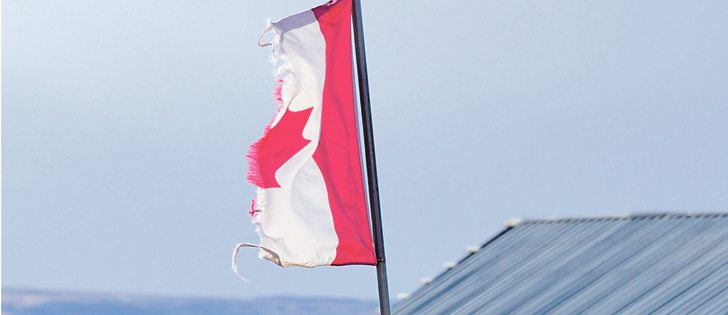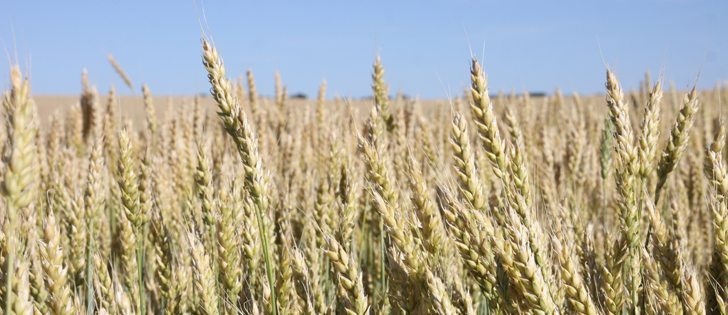Net returns on flax were among the highest of any crop grown in Western Canada last year, and the outlook for next year is also promising, say industry analysts.
However, farmers who are thinking of increasing their flax acreage this year or bringing it back into their rotations should be securing seed as soon as possible.
The Canadian flax industry is in the final stages of a multi-year process aimed at clearing all traces of the genetically modified flax variety CDC Triffid from Canada’s commercial and pedigreed flax supplies.
Read Also

Canadian Food Inspection Agency slammed for handling of bovine tuberculosis case
The federal government leans heavily on producers to “take one for the team” and risk their livelihoods without any reassurance of support.
As part of that process, the industry is encouraging producers to plant their entire 2014 flax crop with certified seed, including seed from reconstituted CDC flax varieties and Agriculture Canada varieties that have been tested and proven GM free.
However, there are already signals that certified seed supplies could be in short supply this year.
Farmers looking for a specific variety should be putting out feelers as soon as possible, said Venkata Vakulabharanam, an oilseed specialist with Saskatchewan Agriculture.
Supplies of some reconstituted varieties are running short in certain areas, and low supplies and high demand could result in rising prices as spring approaches.
SeCan is recommending that its members sell reconstituted CDC flax varieties for $24.50 per bushel, but there is no guarantee prices won’t increase above that level.
“So far, according to SeCan … and other seed suppliers, it seems like we will have enough … certified seed to go around,” Vakulabharanam said.
“But two years in a row, flax has come out on top … in terms of a net return per acre basis … so that means a lot of growers are looking at this option.”
Vakulabharanam said Saskatchewan producers planted flax on 900,000 acres last year, which could exceed one million acres this year, particularly if projected returns for other crops do not improve.
Todd Hyra, SeCan’s business manager for Western Canada, said the industry is optimistic it will have enough certified seed to plant the entire 2014 crop. Seed production among pedigreed seed growers was good last year, he said.
Higher than expected yields mean certified seed supplies will be greater than anticipated.
Nonetheless, SeCan thinks certified seed supplies of its reconstituted flax varieties will accommodate 750,000 to one million acres this year.
CDC’s newest Triffid-free varieties, CDC Sanctuary and CDC Glas, are already sold out or close to it in some parts of the province.
Total flax acreage on the Prairies was close to 1.6 million acres in 2008-09, the year that traces of CDC Triffid were identified in Canada’s flax supply.
Hyra said farmers will also have access to Agriculture Canada varieties such as Hanley, Prairie Blue and Prairie Grand, all of which have been tested and proven GM free.
“We’re just getting a handle on overall seed supplies,” said Hyra.
“We’ve estimated that we have roughly a third to a half more of (pedigreed seed) production than we’ve had for the past several years. Depending on where acres go, that would be the challenge of whether or not we will be able to meet that demand…. Right now, I’m not aware of any of our members that are in a sold out position, but as we get closer to spring, I’m confident that they will … (sell out) and that will pose some challenges.”
Vakulabharanam told a flax industry presentation at CropSphere in Saskatoon that the industry should prepare for the possibility that certified seed supplies will fall short of demand.
“Seed supply is one of the issues, I think, that is on everyone’s mind, and price point is the other one.”
He said farmers who can’t find certified flax seed could possibly turn to planting bin-run seed that has been tested for GM content.
“We have to, as an industry, … (anticipate) every scenario,” he said.
Will Hill, president of the Flax Council of Canada, said the industry is not endorsing the planting of common seed, even if it has been tested and proven free of genetically modified material.
“We’ll deal with that issue when it happens,” Hill said. “I think it’s a bit of a hypothetical situation at this point. We certainly want to ensure that growers put as much certified seed in the ground as possible.”















